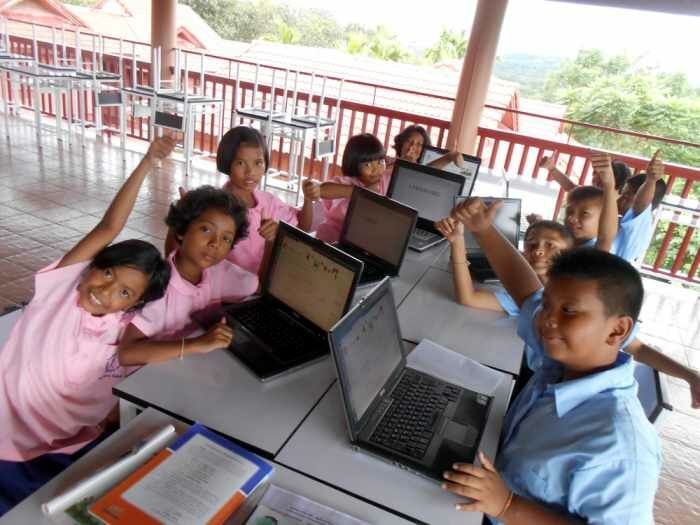Thai govt to crackdown on cybercrime & handout free laptops to poor kids

The Thai government yesterday pledged to crackdown on cybercrime and to hand out 13 million free laptops to students from poor or low-income families.
The Digital Economy and Society (DES) Ministry announced plans to administer free laptops to children from underprivileged families over the next four years starting next year under the Smart Thailand scheme.
The Smart Thailand scheme is part of the kingdom’s digital transformation roadmap, in line with the Thailand 4.0 mission, reported Bangkok Post.
Thailand 4.0 is an economic model that aims to unlock the country from several economic challenges resulting from past economic development models which place emphasis on agriculture (Thailand 1.0), light industry (Thailand 2.0), and advanced industry (Thailand 3.0). These challenges include a middle-income trap, an inequality trap, and an imbalanced trap.
The laptop distribution is part of a collaboration with the Ministry of Education and is supported financially by the National Broadcasting and Telecommunications Commission’s (NBTC) fund in a phase-by-phase process. Around one million laptops are expected to be handed over in phase one.
DES Minister Chaiwut Thanakamanusorn said the Smart Thailand scheme was another landmark for Thailand, following the infrastructure to develop an existing digital ecosystem.
“Manpower, especially in terms of digital skills among state officials, is a critical challenge of the mission as it could help ensure a smooth transformation.
“One important move under the action plan was to provide free laptops. A total of 13 million laptops are set to be distributed to poor students nationwide, with the first phase starting next year with one million units.
“The NBTC’s telecom and the broadcasting fund will financially support the project. A decision on who exactly will receive the computers is yet to be worked out.”
Chaiwut added that the kingdom is preparing to introduce regulations to crackdown on cybercrime and the use of mule bank accounts. These accounts are set up using stolen identities and used by scammers to commit illegal transactions via mobile banking.
“The Royal Decree that defines characteristics of the activities involving mule accounts would be submitted to the Cabinet for consideration soon.
“Under the decree, those opening mobile accounts for others could face legal actions even though these accounts have yet to be used to commit crimes.
“There is a need to strictly govern the existing problem of fraud on mobile platforms.”
The 51 year old Thai MP revealed that digital transformation from 2023 will be pushed forward following the implementation of cybersecurity-related laws and other regulations, such as the Personal Data Protection Act and the digital identity law.
“Thailand is regarded as a country that has the best ICT infrastructure at a global level.
“The government is pushing for infrastructure development as a foundation of Thailand’s development towards a digital economy, especially wireless broadband that is vital to online activities.”
Latest Thailand News
Follow The Thaiger on Google News:


























